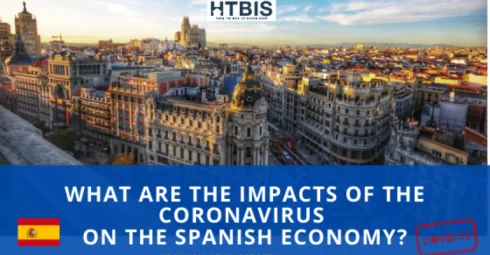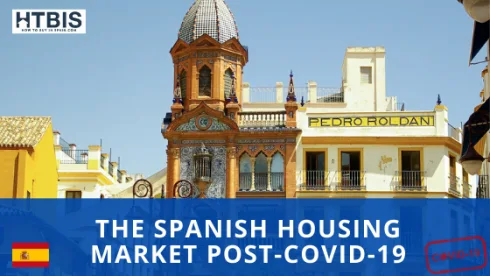 Reading time 3 minutes. Use our table of content for a quick read.
Reading time 3 minutes. Use our table of content for a quick read.
Last Updated on 11/03/2023 by STEPHANE
Click on any flag to get an automatic translation from Google translate. Some news could have an original translation here: News Nouvelles Nieuws Noticias Nachrichten
This article is the third one of our dedicated reports on the Coronavirus, here is our introduction paper: What are the impacts of Coronavirus on the Spanish real estate?
The current situation
We all know that economic activity has been stopped for about 2 months nearly everywhere in Europe. Spain was one of the first countries in Europe to be impacted by the virus, along with Italy. The government took decisive action and the lockdown started on the 12th of March, as you can see on this worldwide comparison table from the BBC. The economy is not in good shape as you can see from the “INE” press release (the Spanish Statistic office): the GDP evolution for the 1st quarter of 2020: -5,2%.
Lockdown easing
As we speak, in early May, the Spanish government looks ready to ease the “stay-at-home” policy, starting mid-May and doesn’t want to release specific dates as stated in El Pais on the 28th of April. We already know that lockdown easing will be organised in four different phases:
Phase 0 or preparation of de-climbing
Will allow some sports activities, some outside walks, and some economic activities. This just started on the 2nd of May: After 7 weeks of lockdown, Spaniards can finally exercise outdoors
Phase I or initial
partial opening of activities will be further allowed if the epidemiologic curve remains steady :
- economic activities such as the opening of small trade by appointment or counter services
- restaurants and cafeterias with delivery take-away will be allowed to open
- agricultural activities will be permitted
- sports activities (extension of previously lifted measures)
- tourist accommodations without the use of common areas and with restrictions will be permitted for use
Phase II or intermediate
The partial opening of activities restricted in Phase I will be allowed with capacity limitations:
- restaurants with table service and terraces can open but only up to 30% capacity
- common areas of tourist accommodation will open
- Large shopping centres will open with capacity restrictions
Phase III or advanced
All activities are planned to be allowed, but always maintaining appropriate safety and distance measures. Among the measures at this stage, the opening up of retail trade that would not have been open in advance, with limited capacity, bars and clubs with very limited capacity, museums and cultural shows, also with limited attendance, etc.
New normality
Social and economic restrictions end, but epidemiologic vigilance is maintained, strengthening health system capacities remains important, and self-protection of citizenship.
Follow this link to read the full pdf in Spanish on how the easing will be organized in Spain.
Here is the official website of the Spanish government for any matter related to the Coronavirus.
Bank of Spain GDP Expectations for 2020
The bank of Spain has run some simulations to check the impact of Coronavirus on the GDP: currently, the bank of Spain thinks that the GDP will decrease between 6.6% to 13.6% in 2020. In our mind, this looks conservative as 2 months of inactivity out of 12 months in a year already means a loss of ⅙… which is 16,6% of a full year…
While at the same time, unemployment will rise in Spain from the current 14,6% level.
Spanish deficit will rise as well as the state supports the economy and increases the current level of debt to GDP which stands at 95.5% as of the end of 2018. Last but not least, consumer and business confidence should take a hit which will not help the economy short term.
Travel Ban and Tourism
Tourism in Spain represents 15% of the Spanish GDP or €178 bn in 2018. Spain is the second most touristic destination in the world, with 84m tourists per year. With the travel ban, it’s not difficult to understand that the travel industry: hotels, restaurants, Airbnb and the many suppliers working to support them, will be impacted. European governments will review if borders and travel will be reopened for tourists in the summer but, as of today, nothing is sure.
Recovery shape?
A very important question is: What will the recovery shape look like?
A lot of economists tell us that the recovery will be quick, or the “V shape” because central banks are massively supporting the economy. In fact, Economists predict a V Shape rebound 70% of the time after recessions but are wrong most of the time. We doubt that the full recovery will come fast, as the boss of the Federal Reserve states. Keep in mind: ⅔ of the economy is driven by consumers, and consumers are suffering. ⅔ of the economy is carried by small businesses, which are also suffering. We were surprised to read that 40% of rental payments in April couldn’t be paid by some Americans and the number was even higher for commercial properties. At the same time, unemployment is exploding around the world.
Here are a few interesting questions we think:
- Will travel resume as before? Airlines will have a very difficult time and people will travel less
- Will corporations rehire 100% of their personnel?
- Will economic activity resume as before?
- Will social behaviour resume as before?
- Will outsourcing to developing countries resume as before?
We tend to answer “No” to most of these questions. We think that the economy will suffer big headwinds, that Airlines won’t be in business as usual before anytime soon… and that the crisis could expand with a domino effect. Have a look at the insights of one of the best investors over the years published in the New York Times: Warren Buffett’s Optimistic? Pessimistic? No, Realistic
As a conclusion, the economic situation will be back to normal at a slower speed, which means fewer transactions and lower prices in general, as well as more opportunities for the buyers.
Don’t neglect the basic recommendations to keep yourself and others safe:
- maintaining a social distance of 2 m,
- regular hand washing,
- cover your mouth when you cough or sneeze,
- avoid touching your face after touching hard surfaces where the virus can live.










